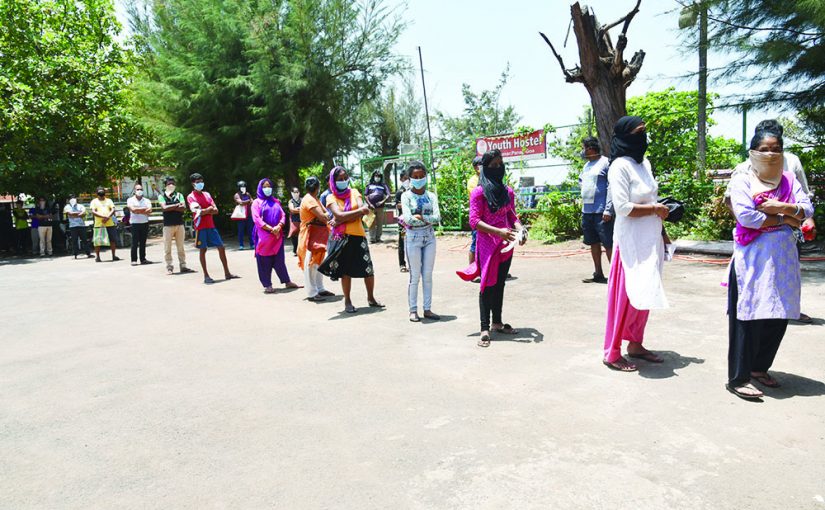The question making the rounds is what are the take-home messages of the coronavirus pandemic. Were you bored a home, did you party alone, did you sit glued to television or smart phone watching films, did you have problems with daily rations…did you spend time reviewing your life, did you become more spiritual or more religious, did you grow up some more as a human being? Has this lockdown changed your life in any way? We asked around and got some useful responses…
MY CORONAVIRUS DIARY
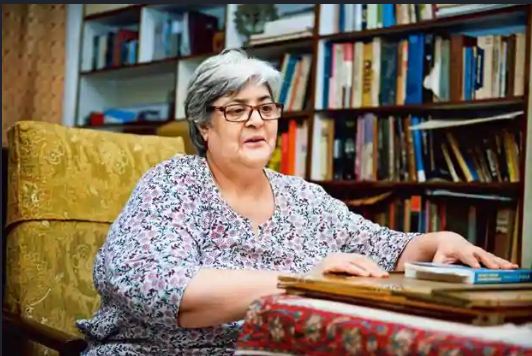
Celebrated Supreme Court human rights lawyer and author NANDITA HAKSAR, who divides her time between capital city Delhi and Goa, offers a funny yet not so funny account of the coronavirus lockdown, which took a toll on her peace of mind…in an India emerging as an authoritarian state.
Week 1
March 25 to 31
Wuhan seems far away; so does the threat of the Corona virus.
And then the Prime Minister announced that there would be a lockdown for 21 days for the entire country. My first thought was of Kashmir. It had been a way to socially and politically distant them from us, the rest of the country. But we would continue to have our internet, our phones. It would be a lockdown not a clampdown.
The first act of social distancing during the lockdown was between the rich and poor; maids were forbidden to enter into our building. But the people who had got the deadly virus were the rich and those who could afford to travel by air across continents.
That first day of the lockdown our doctor in Delhi forwarded two jokes:
“Tomorrow has been declared a static day in India. The only movement permitted is that of the bowels.”
And
“During Quarantine it is normal to talk to your walls, plants, pots. Contact us only if they reply.”
But soon we discovered that the lockdown was not funny at all.
On March 30 we read news reports of the police thrashing workers who had come down in the lockdown despite fact that they had travel passes. The next day there were reports and video clips forwarded on whatsapp of the CRPF beating people on the streets of Panjim for violating the lockdown. It reminded us of our experiences in Manipur but there the militants got beaten; here ordinary citizens were being thrashed.
The most disturbing images were the migrant workers who found themselves jobless; desperately they tried to return home and since there was no transport they decided to start walking.
I told my husband I too wanted to go back home to Delhi. I felt an outsider here.
Week 2
April 1 to 7
Livingstone Shaiza, friend who lives in Baga, phoned to say a migrant worker who had gone to a shop to buy rations in Nerul was refused entry because he was told he was “Chinese” who were responsible for spreading the virus. Many migrant workers from Northeast feel unsafe and want to go back home. Their home is too far to walk.
The news channels are full of news of how the Tablighi Jamaat had congregated in Delhi despite the lockdown and many had been tested positive. It was a stupid, even criminal thing to do but the incident fed into the already growing Islamophobia which had gripped our country during the agitation against the Citizenship Amendment Act, 2019. The news channels unashamedly indulge in demonization of Muslims.
In this background the Prime Minister calls for a blackout to celebrate national unity. He asks all of us, Indian citizens to switch off our lights on Sunday April 5 at nine at night for nine minutes. It is reported that this timing is something to do with some mystical or should I say superstitious belief that it would cure the virus. In America, the New York Times carries reports that religious ultraconservatives now haunts the American response to the coronavirus crisis. They were responsible for President Trump’s decision not to have a lockdown when the first case of Covid-19 was detected in January.
The battle against the virus will be also a battle between science and religion.
Week 3
April 8 to 14
This week we spent trying to find alternative accommodation for the migrants from the Northeast, especially Manipur. We are the elders and we feel somehow responsible for these young men and women who are so far from home. Most of them work in the hospitality industry and in spas which are the worst hit. Many restaurants have told the workers they are shutting down permanently.
The Government has passed an order that landlords cannot throw out tenants; but the migrants feel unsafe and do not want the administration or police phoning their landlords. They feel increasing anxiety and uncertainty.
In the process of looking for a place for the migrants we discover that resorts and hotels have been taken over by the Government to be used for quarantining people so if you are rich you can get five star facilities; I do not want to imagine what kind of isolation the poor will face, especially if they are migrants.
The Administration offers us a hostel which we go to inspect at night. In the large hostel there are three youth from Meghalaya. They were working in Miramar and lost their jobs and found themselves on the road. They looked very frightened.
The local persons in charge tell us there is no kitchen in the hostel. They do not want Chinese looking people. But on our second visit we find the kitchen in the basement and the migrants start moving in.
The grandson in law of BabaSaheb Ambedkar Anand Teltumbde is arrested in a case which many believe is totally false. He is a distinguished scholar and his scholarship challenges the premise of the Hindutva ideology.
Lockdown has been extended to May 3.
Week 3
April 15 to 22
The Northeast migrants have settled into their new accommodation. The hostel is spic and span and they are safe. They are the lucky ones. On the way to their hostel we see a long line of migrants standing with their thalis while some food is doled out to them from a Government helpline. We see them walking back in the hot sun.
We also see photographs posted in the social media of NGOs posing with migrants as they distribute food. A friend tells us that a migrant told her that the NGO had arrived at ten at night with the food and they were in their night dress and the NGO members made them pose for selfies.
It is sickening to see the celebrities posting the cakes they are baking; the work outs they are doing to keep themselves fit and how they are enjoying their time in their homes.
The economy has taken a beating and many of the jobs lost will not be revived. There are no news reports of what has happened in the villages after the migrants returned; there is one report that domestic violence has gone up.
On the way back home we see our maid’s husband feeding the dogs; at least he has not lost his job – to feed the street dogs twice a day.
Week 4
April 23 to 29
By now the reality is sinking in.
A friend from Mumbai phones to say her building is sealed because they have found one man tested positive and he has been taken away to hospital and his wife and small son are in the flat. Another friend from college days lives in Navi Mumbai says she can see flamencos flying in and settling in the pond behind her flat.
Slowly basic human rights are being eroded; we have CCTVs monitoring our every move. Some time one person was caught smuggling their maid into their flat; it is wrong to break society rules but the greater danger is to accept surveillance as normal.
Then there is news of a doctor in Meghalaya who has died of Coronavirus. We know his son in law, a pilot in Air India. He has flown to USA and Italy to evacuate Indians . He has written a moving letter saying he is deeply distressed by the kind of prejudiced attacks on his family because of the virus. He and another 16 members of the family have been tested two times and all have tested negative.
The prejudice against the patients reminds us of the prejudice against the patients with AIDs. Stigmatized and driven out of their homes; now the new threat.
We get a desperate call from Manipur telling us that a young woman in Porvorim is being beaten; someone sends us a video and we decide not to circulate it but it is so ugly. This hatred, this prejudice and the xenophobia is unsettling.
Even in the comfort of my flat I too feel like an outsider; and I too want to go home. I had always thought home is India; but I have discovered that India is an idea which has not been realized. Meanwhile I have turned 66; a year older than my mother….
When the lockdown is finally lifted and the threat of the virus is gone we will step into an India which has become more authoritarian; more intolerant and many lakhs would have died, not of the virus but of the hunger, curable diseases and the lack of water.
Takeaway from Lockdown
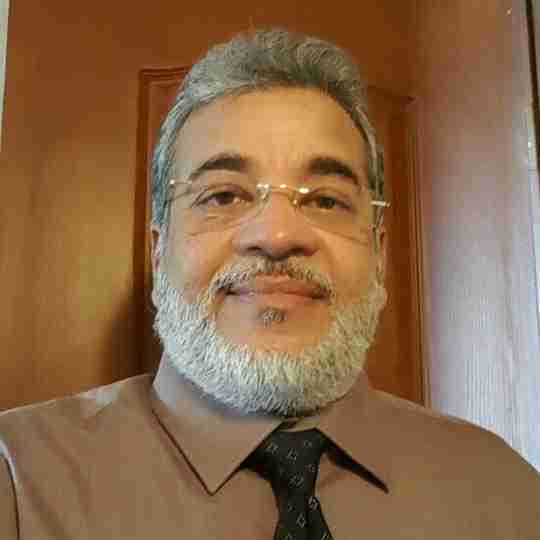
Mankind is currently facing an unprecedented humanitarian crisis almost to the point of threatening our very existence from the planet by a seemingly tiniest viral particle. The pride, arrogance and the superiority complex of the greatest of men and nations have been made to bite the dust by this organism.
But over last 4 weeks of Lockdown what have we realized which wouldn’t have been possible otherwise?
- That man is not the center of the universe and can be brought to the knees by nature. That it’s time to give up our anthropic arrogance that the universe was designed for humans. There are over 8 million species of living beings on earth apart from humans which are equally, perhaps more important for survival of life on earth. In fact if humans disappear from earth it will flourish but the reverse cannot be said to be true. Organisms as “lowly” as earthworms are “keystone species” because of their influence on the physical, chemical and biological properties of the soil
- While space exploration by humans have offered them a new perspective on Earth and its problems, we started looking for refuge if Earth becomes untenable for human existence. This is not the solution. We will simply carry our problems there to repeat our self-destroying tendencies.
- While materialistic life may seem lucrative and tempting to us we have come to realize that during this lockdown even if you have truckloads of cash at home it will not buy you the bare essentials for survival.
- Whereas we have destroyed our lush green fields to be replaced by concrete jungle we have come to realize that this is a totally self-destroying selfish activity. We dug hills and plateaus for posh buildings and earth for mining. Without being self-sufficient in agriculture products one day will lead us to disaster. We cannot go on begging our neighboring states and also call them derogatory names when their utility to us is over.
- We have come to realize the value of dignity of labour and the importance of household chores such as dusting, sweeping, washing, cooking, gardening, and be less dependent on others. Its time also to teach our children these activities which over a period of time we have been telling them to be affluent and afford domestics at home to do menial work.
- We have also come to realise how important is to cultivate a hobby which can be of immense help during these times to keep your mental sanity. And that just being good in your job doesn’t guarantee you a complete life.
- It was also time to learn to introspect, do yoga and meditation, increase one’s mindfulness and enjoy the simple gifts of nature. How to be alone in these times and enjoy the company of your own self for a change.
- Most of us have also realized how important it is to enjoy the company of our family and not just be a workaholic. We found many of the people having reached pinnacle of their career being totally misfits and restless when they had to spend time only with their families.
- We realized how important and valuable it is to learn to live in frugality with bare minimum resources and to save every morsel of food instead of our habitual wasting.
- We have come to realise now that true learning takes place at home. This lockdown will have negative impacts on children. For many children this crisis will mean limited or no education, or falling further behind their peers and it will be their parent’s utmost responsibility to educate their children.
- We also realised that life can go on without unrestrained shopping in malls, spending time in restaurants and resorts, celebrations of birthdays, anniversaries, marriages and kitty parties.
- Not travelling meant saving on petrol, thus lowering its prices, reducing pollution and stop feeding the ego of select few oil rich nations.
- Deaths from road accidents have drastically come down due to lockdown. Whereas thousands of deaths due to road accidents were being reported every day in India that in fact we have saved more lives overall than lost due to Covid 19.
- We have come to realise that you can still work from home and earn without going to office. Total dynamics of working in office is likely to change forever which will mean less wastage of resources, less travelling and its related climate pollution.
- We have realised the value of personal hygiene and health more than any time in the past. The world has realized that the less privileged, despite poor financial reserves have better resilience and survival chances due to better immunity than most elitist countries.
- Till now we only knew the “value of profession” such as of glamorous sportsmen, cinema actors, financial wizards etc. but now we have come to realize which are the “professions of value” such as medical, hospitality, newspaper and media, farmers and sanitary cleaners without whom we would not have survived this crisis.
- We have come to realize it’s better to sacrifice economics rather than human beings unlike some of the other so called developed nations because if human beings exist economies can be repaired.
- Ultimately all of us have come to realise the value of “Pratyahara” of Ashtang Yoga that is practice of withdrawal of sensory stimuli from your mind, even though by compulsion, in order to have conservation of energy responsible for healing and a focused pointed blissful life.
“I enjoyed not being affected by the lockdown”
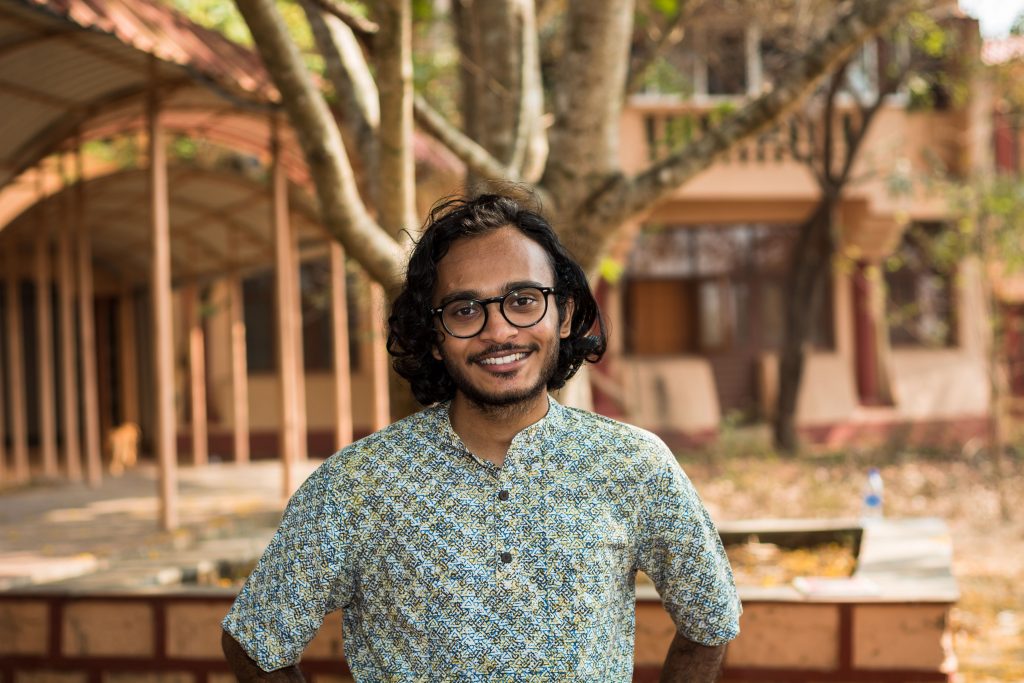
As a homebody, I revel in spending time at home reading books and magazines for days. So, I was not particularly fazed by the idea of staying put for a long time. During the lockdown, I kept myself busy in tidying up my home, spending quality time with family and catching up on work. I did miss socialising with peers and colleagues in person, but video calls and social media guaranteed that there was no lack of communication. Living in a salaried household in an urban area ensured that I did not lack anything. Therefore, the lockdown was not an uncomfortable experience for me personally. As a teacher, it was a slight inconvenience to conduct exams online simply because I had not done so on such a scale in the past. But thanks to the efficient integration of modern technology at my autonomous college and the cooperation of my students, I did not suffer in the least. However, one thing that did weigh on me quite heavily during the quarantine period was the privilege that I enjoyed at not being affected by the lockdown. There are many others who do not enjoy the safety and comforts that I have access to. I could not help but wonder at the lack of support extended to the homeless, migrants and informal sector workers whose lives are generally precarious in normal times and especially vulnerable in exigent circumstances.
Life Under Lockdown
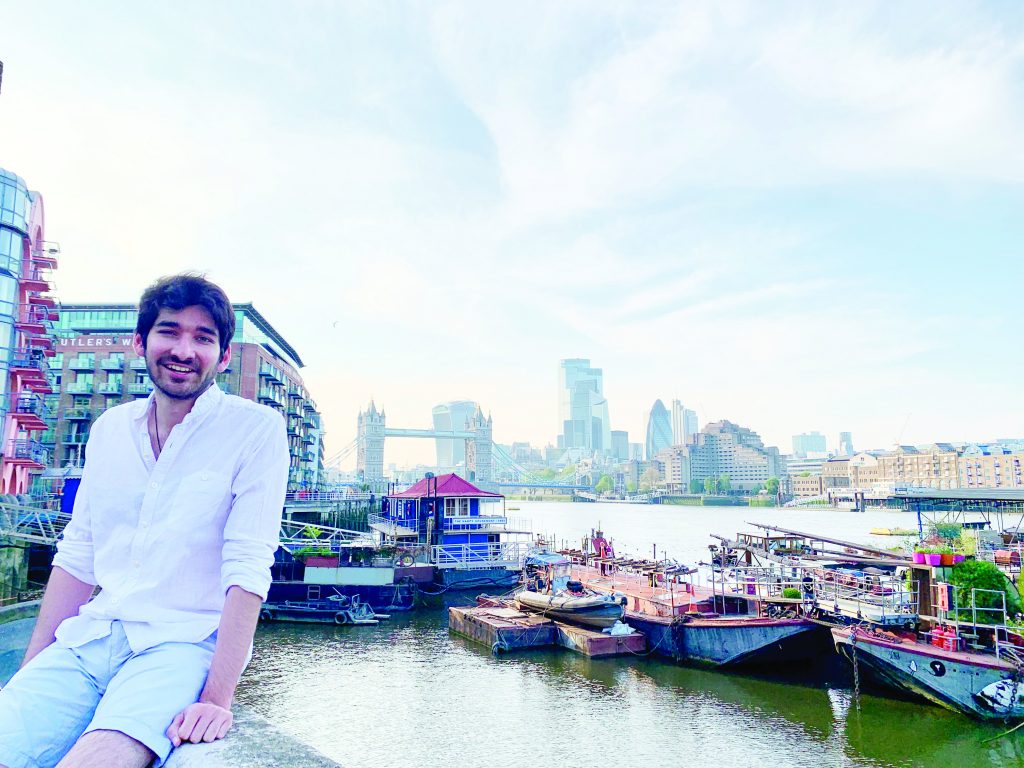
It is natural to have a mix of emotions during this pandemic. It has brought the whole world to a standstill with billions of people under lockdown. Economies as know are no longer the way they used to function and one ponders when reality will return to our lives.
I have been living and working in London for the past couple of years. London is known for its hustle and bustle and the business, one would almost never come across empty streets and restaurants closed with a tone of silence everywhere.
The UK entered into lockdown on the 23rd of March. My firm, asked us to work from home immediately. We already had systems in place to enable us to work remotely. Work has been busy as usual for audit, my profession. However, when the UK entered into lockdown, India too closed its borders down
There is an uncertainty of when I would be able to fly back to Goa and return to family. My brother, Pratik Jain is currently in lockdown in the US. This makes is overwhelming.
The shops and supermarkets are open in the UK. Shops have been asked to maintain social distancing of 2 metres and there are only a limited number of people allowed inside a shop at a particular time. The stores at the start of the lockdown ran out of a lot of essential supplies and cupboard food such as pastas, chopped tomatoes, chickpeas, eggs, bread. There were isles in stores completely stripped out of food. (pictures available).
The lockdown rules permit you to step outside the house once a day for exercise and to go to the stores, however, they have advised on buying only essential goods. Normal non-essential stores just like in India are closed too.
I am working from home remotely with the same hours i used to work when i was going to the office. However, the benefit of working remotely is that you can make work flexible. I generally visit the shops during mid week around lunch time. the shops are stocked up by that time and i can do my weekly shopping.
It is hard to be living and working and being away from family during this pandemic. However, I keep myself occupied by working, cooking and experimenting new dishes, reading and taking photographs of areas near my house during my daily exercise (walks, cycling). I speak with my parents and brother daily and take full advantage of technology to make video calls with family and for work purposes.
I like to cook on the weekends, do the household chores such as cleaning and doing laundry. What was considered something the household help would do and people in India were not used to doing such as laundry and cleaning, has been a normal part of routine for life here in the UK, so this doesn’t feel any different.
There are challenges though, being a young professional and an outgoing individual, sometimes it is hard not being able to step outside and meet with friends. My friends regularly play games on apps such as Houseparty or we play Ludo to keep busy.
I am currently residing with a flatmate who is studying for his professional qualification. We keep each other company and both keep positivity for each other, helping each other be sane.
During this time, it is essential that we all listen to the advise and each of us have a part to play so that we together can overcome this virus.
Taking it easy
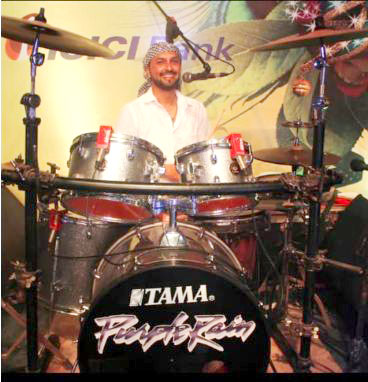
This lockdwon took us by surprise, if you see it from a commonman’s perspective.As far as as I am concerned I am taking it easy from day one. I have habbit of buying in bulk and in advance. I am stocked-up for a month or more. My mornings are spent gardening and watering the plants as my mother has a small kitchen garden. Afternoon my brothers join me for chit-chat. Sometimes, end up watching moving or practicing on my drums. Evenings are spent in exercising as I walk around 6 kms everyday.
